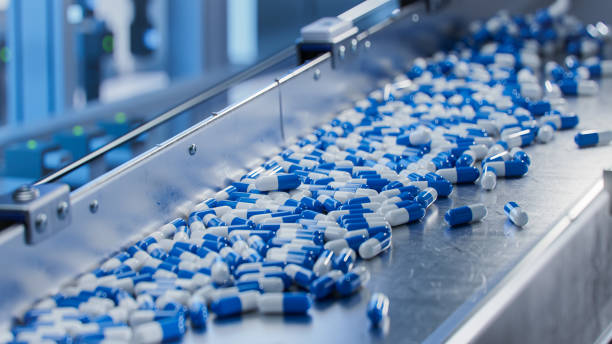Artificial intelligence (AI) is increasing pharmaceutical R & D, lowering costs and accelerating the time period to market for new medicines. A subset of AI called machine learning (ML) is applied to massive biological data, predicting drug compound efficacy and identifying novel drug candidates in ways that conventional techniques can not be competitive. The incorporation of AI in pharmaceutical research is simplifying the drug discovery process which is usually expensive, time-consuming and resource-intensive and usually takes years or years to create brand new treatments.
Probably the biggest contribution of AI in drug discovery will be the capacity to evaluate huge biological details in an accurate and systematic way. Drug discovery entails studying links among diseases, proteins, genes, along with other biological systems. This research was traditionally based upon slow and limited manual experimentation. AI, particularly ML algorithms, can easily process huge amounts of information – such as genomic, clinical and proteomic trial information – discovering patterns and connections that human researchers may not easily see. This enables scientists to determine possible drug targets quicker, allowing more effective drug development.
Another area where AI is making substantial contributions is molecular design and virtual screening. Machine learning models predict an accurate interaction between drug compounds and biological targets (enzymes or proteins). Scientists can screen millions of chemical compounds to locate those most likely to bind with a target via AI-powered algorithms. This eliminates time-consuming and costly lab experiments and could lead to discovering promising drug candidates a lot earlier in the process. Companies like Atomwise and BenevolentAI use AI to virtual screen compounds and learn new molecules which may be developed into drugs.
An additional area where AI excels is de novo drug design (fabricating brand new drug molecules from scratch). Machine learning algorithms can derive novel drug compounds by analyzing known molecular structures and suggesting new configurations which could be effective against identified natural targets. This capability allows AI to develop drugs with higher specificity, lesser side effects and much better effectiveness. AI may even improve pre-existing medications by altering molecular structures to enhance their performance or even minimize toxicity. These methods can considerably alter drug development, especially for diseases without any current therapies.
Possibly the most promising applications of AI in drug discovery is the prediction of drug interactions and toxicity. Throughout drug development it’s vital that you figure out whether a brand new drug is safe for human use. AI models can decipher the structure of a substance and anticipate its interactions with body biological systems, flagging likely negative effects or adverse interactions with many other medications. Machine learning algorithms trained on historical data of clinical trials and pharmacological studies predict toxicity probability to stay away from expensive late-stage failures in drug development. By identifying toxicity risks earlier, AI ensures only the most promising and safe drug candidates enter the development pipeline.
AI is also affecting how scientists use clinical trials. AI may identify ideal patient populations to try out new drugs by analyzing patient data. This is particularly useful when developing treatments for rare diseases or personalized medicine where the drug – patient match is critical. AI can even optimize medical trial design by anticipating precisely how various variables like dosage or patient demographics will impact outcomes of the trial. This helps pharmaceutical companies conduct better and successful trials and could shorten time of entry of new medicines to market.
AI-assisted repurposing of existing drugs also gained momentum. Drug repurposing entails finding new therapeutic applications for medications which are already approved for various other ailments. AI algorithms might parse through information on existing drugs and derive candidate drugs that act against other diseases based on chemical properties and biological interactions. This approach has proven especially helpful during the COVID 19 pandemic in which AI has identified medicines potentially repurposed for viral treatment. For instance, companies like Insilico Medicine and Recursion Pharmaceuticals have used AI to search for existing drugs which could be repurposed for COVID-19, accelerating the hunt for appropriate treatments.
AI presents hurdles in drug discovery despite its potential. The major barrier is the data quality & availability. Machine learning systems can only learn from information they’re trained on, and pharmaceutical data might be sometimes, unstructured, and complex incomplete. AI requires access to high quality, well curated datasets to make meaningful insights and accurate predictions. Additionally, it is still an obstacle for authorities to approve AI driven Drug discoveries, because regulatory agencies including the U.S. Food & drug Administration (FDA) should create frameworks for analyzing drugs created using AI solutions.
Furthermore, the interpretation (“black box”) of AI systems is an issue. AI can make really accurate predictions but the decision making process for a few machine learning systems like deep learning techniques isn’t readily explained. This particular lack of transparency might leave scientists and regulators unsure about exactly why a specific drug candidate was chosen and this might encourage hesitancy to follow AI driven discoveries.
Despite these hurdles, AI is still driving towards drug discovery and the future appears promising. With more information readily available and algorithms getting more advanced, AI will continue to enhance identifying drug targets, developing drugs, predicting interactions and optimizing clinical trials. Additionally, AI combined along with other emerging technologies like synthetic biology and quantum computing can redefine the limits of what’s feasible in drug development.
To conclude, AI and machine learning are increasing pharmaceutical research to enhance the pace, precision and productivity of drug discovery. From analyzing huge sets of biological data and virtual screening compounds to designing brand new molecules and predicting drug safety, AI is transforming the traditional drug development cycle. As the technology develops and more information becomes available, AI becomes progressively more central in supplying the next generation of life saving therapies, meeting unmet health needs and disrupting the worldwide healthcare landscape.

